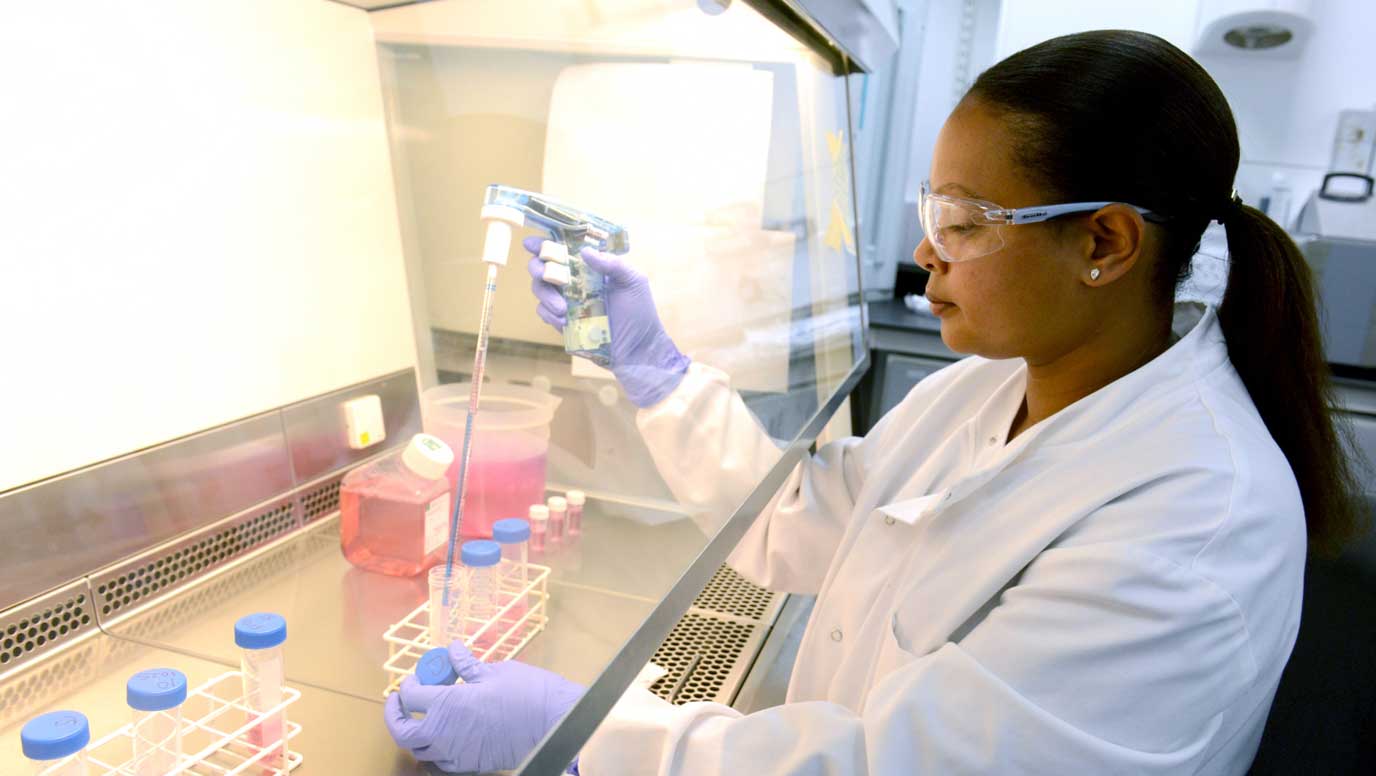Cambridge role in breast cancer drug progress

Capivasertib was discovered by AstraZeneca following a joint venture with Astex and its collaboration with The Institute of Cancer Research and Cancer Research Technology Limited.
MHRA approved the first-in-class drug in combination with fulvestrant for treating HR-positive, HER-2 negative locally advanced breast cancer with specific biomarker alterations (PIK3CA, AKT1 or PTEN) following recurrence or progression on or after an endocrine based regimen.
Tumours with mutations or alterations in the PIK3CA, AKT1 or PTEN genes are found in approximately half of patients with this form of breast cancer.
The next step will be for NICE and other appraisal bodies to meet with the manufacturer to determine whether capivasertib (trade name Truqap) will be made available on the NHS.
The latest backing follows similar licensing by the Food and Drug Administration last November and more recent approval by the European Medicines Agency.
Capivasertib is a first-in-class drug that works in a new way, by blocking the activity of the cancer driving protein molecule AKT.
Professor Nicholas Turner at the ICR and The Royal Marsden NHS Foundation Trust led the international phase III CAPItello-291 trial, which led to the drug’s approval. The trial was sponsored and funded by AstraZeneca.
Results from the CAPItello-291 trial showed that capivasertib doubled the time it took for cancer to progress in people with advanced HR positive, HER-2 negative breast cancer –from 3.1 months for patients who received hormone therapy alone to 7.3 months for those who received hormone therapy combined with capivasertib.
Participants on the trial had experienced their cancer recur or progress despite standard hormone treatments and most had also previously been treated with a CDK4/6 inhibitor – a class of drugs that stop cancer cells from multiplying.
In the UK, patients with advanced HR-positive HER-2 negative breast cancer are otherwise left with the option to continue to receive fulvestrant hormone therapy, which is often ineffective, or chemotherapy, a treatment which carries debilitating side effects. There is great need for new treatment options.
The development of capivasertib followed years of fundamental research at the ICR, aimed at understanding how the AKT protein is regulated. The AKT protein had been identified as an attractive target for anti-cancer drugs due to its involvement in the growth and survival of cancer cells.
In 2002, ICR scientists cracked and published the 3D structure of AKT and showed how the protein is activated.
Researchers in the ICR’s Centre for Cancer Drug Discovery, with funding from Cancer Research UK, then worked in collaboration with Astex Pharmaceuticals to design small-molecule inhibitors which would target AKT, based on its 3D structure.
In 2005, a series of prototype drug compounds discovered by the ICR and Astex was shown to have very promising activity against a range of human tumours grown in mice and was licensed to AstraZeneca.
Then, in 2010, AstraZeneca announced its discovery of capivasertib, and began to develop the drug as a potential treatment for various forms of cancer.
The initial clinical development of capivasertib was centred on an early-phase trial which was led by the ICR and its partner hospital The Royal Marsden. Subsequently, phase II studies were completed in the UK in collaboration with the UK Cancer Research Network.
The trials used biomarkers that were developed at the ICR to show proof of concept that the AKT protein was inhibited by capivasertib.
Professor Turner said: “This is a wonderful development in the treatment of the most common type of advanced breast cancer. Around half of patients with this kind of breast cancer have mutations in one or more of the genes – PIK3CA, AKT1 or PTEN, and for these patients, capivasertib provides an exciting, new targeted treatment which can keep their cancer from progressing for longer.
“We hope NICE will recommend the use of capivasertib in combination with fulvestrant for patients on the NHS.”
Harren Jhoti, Chief Executive Officer of Astex commented: “We are incredibly proud that our drug discovery partnerships have resulted in such a successful outcome with MHRA approval for AstraZeneca’s Truqap (capivasertib) following earlier FDA and EMA approvals, bringing new options to breast cancer patients.
“The early discovery research was a great collaborative effort and I would like to acknowledge the impressive pioneering research carried out by our colleagues at the ICR, including solving the 3D crystal structure of AKT, which was vital in enabling our initial drug discovery approach.
“This is also a great example of UK Biotech-Academia-Pharma collaboration and underlines the strength of the UK life sciences ecosystem.”


